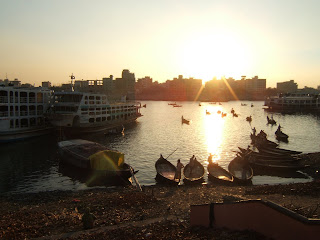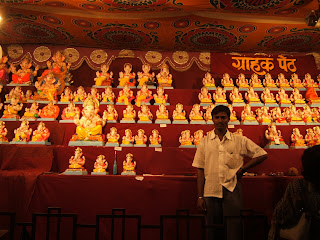In the morning, I speak to the police on the phone and they tell me it is easier for them to visit me at home than for me to report the crime at the police station. They arrive just as I am putting the finishing touches to a report of the event, complete with a map of the road where it happened. I present this to them and sit down. Two officers, my parents, me. The police decline a cup of tea. One officer tells me he will ask me some questions; the other officer sits and starts reading my report. As officer one asks his questions - where was it, what happened, what did the men look like - officer two looks up from the report and says to him "It's here, it's all written here."
Officer one is a little thrown by this. "We don't normally get this kind of thing," he says. "Normally people take a couple of days to get all the information to us. What do you do for a living?"
"He's a writer," my mum answers.
"He's an anthropologist," my dad says. "He studies people."
"Ok," says officer one, "so you're probably going to write something about us." He looks at my report. "This is pretty good."
"Yes, it's fairly objective," my mum adds, having looked through it before I printed it.
"I stopped short of adding sentences like 'My heart was pounding'," I say.
"You should have left them in," says officer one.
(It now transpires that two years of training as an anthropologist is perfect training for reporting an incident of mugging. The irony is, I went to India to study and write about social problems there, and never once felt myself to be in danger of this kind, despite more late night bus and train journeys than you can shake a stick at. Three weeks back in England and this happens.)
Officer two's mobile rings. He goes out of the room to answer it. It's the finger-printing squad, who are debating whether it is worth their while to visit me at home to fingerprint my mobile or wallet - both of which were given back to me by the muggers after they took my cash and cards. "Is it a leather wallet?" Officer two relays to me from the finger-printers. I nod. "Yes," he relays back. Next question: "What sort of leather is it?" I read the writing on the wallet. "Real Leather."
The questions are finished. Officer one wraps up. "I remember when I was mugged at the age of 16," he says. "The same thing: they said, 'Tell us your PIN number! And don't lie to me!' Like with you. That always amused me. I mean, what do they expect? I said, 'I won't lie to you, my PIN is 1234'. And off they go."
I, we, me and my brother
We got our Keffiyeh
to fit in with today's protest crowd
to slip in and out of their pockets;
onto a nightbus the two of us
See this boy talking loudly to the driver
was asleep, missed his stop; gets off to get on
the same bus, opposite direction
by an isolated industrial estate.
We wait one stop and get off
to get him, his wallet, his cards
with just a raised fist. So easy we laugh
a shaky nervous laugh. And tomorrow
he will feel the burden
the white man's burden of representation:
"They were black. They wore Keffiyehs"
The policeman will say "Could be gang colours, I'll research it"
(and will offer the other insight that inspired this poem:
"we get a lot of cases of muggers waiting for individuals to get off nightbuses at isolated spots")
and the boy will recall that in 20 months in India
he caught plenty of late night/early morning buses and trains
and never felt unsafe. As I say,
the burden of representations.
We have 35 pounds and 2 cancelled cards.
Our faces on CCTV.
Our shaky nervous laugh.
I, we.



